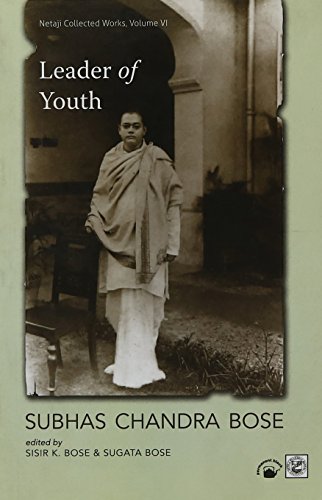Subhas Chandra Bose Edited Sisir (2 results)
FeedbackSearch filters
Product Type
- All Product Types
- Books (2)
- Magazines & Periodicals (No further results match this refinement)
- Comics (No further results match this refinement)
- Sheet Music (No further results match this refinement)
- Art, Prints & Posters (No further results match this refinement)
- Photographs (No further results match this refinement)
- Maps (No further results match this refinement)
- Manuscripts & Paper Collectibles (No further results match this refinement)
Condition Learn more
- New (2)
- As New, Fine or Near Fine (No further results match this refinement)
- Very Good or Good (No further results match this refinement)
- Fair or Poor (No further results match this refinement)
- As Described (No further results match this refinement)
Binding
- All Bindings
- Hardcover (No further results match this refinement)
- Softcover (2)
Collectible Attributes
- First Edition (1)
- Signed (No further results match this refinement)
- Dust Jacket (No further results match this refinement)
- Seller-Supplied Images (No further results match this refinement)
- Not Print on Demand (2)
Language (1)
Price
- Any Price
- Under £ 20
- £ 20 to £ 35 (No further results match this refinement)
- Over £ 35 (No further results match this refinement)
Free Shipping
- Free Shipping to United Kingdom (No further results match this refinement)
Seller Location
Seller Rating
-
In Burmese Prisons : Correspondence May 1923 July 1926
Published by Permanent Black 2008, pbk, 2008
ISBN 10: 8178242508 ISBN 13: 9788178242507
Language: English
Seller: Vedams eBooks (P) Ltd, New Delhi, India
First Edition
£ 2.28
Convert currency£ 19.02 shipping from India to United KingdomQuantity: 1 available
Add to basketSoft cover. Condition: New. 1st Edition. Prison letters despite being subjected to the scrutiny of government censors often supply some of the deepest insights into the mind of a revolutionary Subhas Chandra Boses letters from Mandalay certainly underscore the truth of the poetic assertion Stone walls do not a prison make nor iron bars a cage They make this volume one of the most moving in the 12 volume set of Netajis Collected Works Subhas Chandra Boses exile in Burmese prisons from 1924 to 1927 witnessed the transformation of a lieutenant to a leader During the non cooperation movement and its aftermath he had wholeheartedly accepted Deshbandhu Chitta Ranjan Das as his political mentor The apprenticeship was cut short by Deshbandhus death in June 1925 When Subhas received this terrible news as a prisoner in Mandalay he felt desolate with a sense of bereavement as he wrote to his friend Dilip Kumar Roy Netajis letters cover a very wide array of topics art music literature nature education folk culture civic affairs criminology spirituality and of course politics He bore the rigours of prison life with a combination of stoicism and humour This volume is indispensable to an understanding of Indias most major revolutionary leader and will interest all historians of modern India 384 pp.
-
£ 9.49
Convert currency£ 19.02 shipping from India to United KingdomQuantity: 5 available
Add to basketSoft cover. Condition: New. This volume brings to readers the thoughtful voice of Subhas Chandra Bose as he spoke to audiences of students and youth across the country during the months that he was out of prison between 1929 and February 1933. It was in 1929 that Jatindranath Das a young associate of Bhagat Singh died in Lahore Jail after a hunger strike. Jatin had served in the Congress volunteer corps in 1928 under Subhas, who took charge of the funeral rites. In October 1929 Subhas journeyed from Calcutta to Lahore to deliver a message of complete emancipation to the Punjabi students conference, lauding Jatin s sacrifice. On his return to Calcutta Bose was arrested and on 23 January 1930, the day he turned thirty-three, he was imprisoned on charges of sedition. From behind bars Bose watched with admiration as Gandhi made his next moves towards civil disobedience. These are among the many fascinating episodes that comprise this volume, which shows Subhas emerging as a pan-Indian leader in his own right, and as the only real spokesman of the Left. (jacket).



